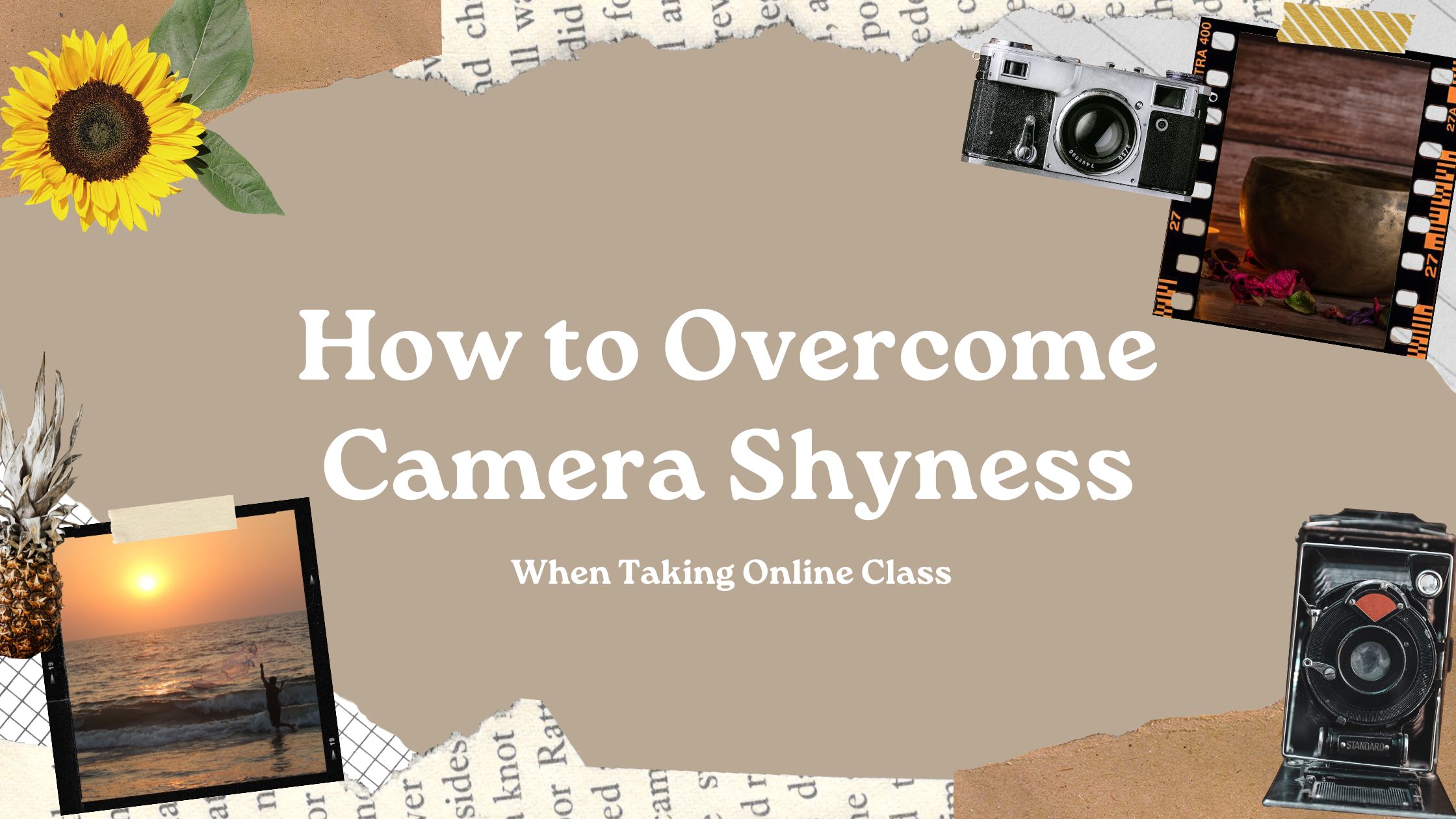The days of giving presentations while standing in against the class are long gone. Many shy students may be happy to hear this, but there are additional difficulties with online class. Teachers frequently call students over the phone and ask them to turn on their camera and answer questions. Instructors employ this to ensure that you are genuinely attending the class and listening to the talk. However, a lot of students have camera shyness, which makes online communication difficult. You’re not the only person who has ever wonder that, I wish I could pay someone to do my homework so I wouldn’t have to turn on my camera.
It is essential to overcome camera shyness in order to participate in online classes effectively, build optimism, and enhance interpersonal skills.
Recognizing Camera Shyness
Camera shyness is a very common phenomenon, which happens to most individuals. It is provoked by a numerous array of mental factors that bring about individuals getting uneasy and fidgety before the camera lens. We may face and overcome these fears if we understand the psychology behind camera shyness.
Why Some People Are Camera Shy
The dread of feeling inspected or evaluated by others is one of the main causes of anxiety when being on camera.
- It can be debilitating to think about being in the forefront of attention and seeing our every action watched.
- It is natural to worry about how we appear on camera and whether others will be satisfied with what we are doing.
- • Furthermore, insecurity or low self-esteem can also be a cause of camera shyness.
- • It’s difficult to relax in front of the camera if we don’t trust our competence and beauty.
- • It is hard to show ourselves authentically when we have a negative self-perception because it can heighten nervousness and self-consciousness.
Signs of Camera Shyness
Recognizing and addressing our worries might be facilitated by understanding the signs of camera shyness. By being aware of these symptoms, we may create plans to go past them and become more comfortable on camera. But camera is not required in all online services. When you outsource your work to assignment help online service, you just need to handle all the work to them and wait for the magic to get done.
- The most frequent sign of camera shyness is becoming upset or fearful when requested to appear on camera.
- • The fear of coming in front of the camera may be the cause of nervousness and anxiety.
- Camera-shy individuals might avoid being placed in positions where they shall appear on camera.
- This can mean declining opportunities for blogging articles, video interviews, or booked speaking appearances.
- The fear of being camera shy can manifest as physical symptoms.
- A racing heart, sweaty palms, shaking hands, or even stomachaches are some of these symptoms, though they might differ from person to person.
- Speaking on camera and hesitating or fumbling over words: The stress of being on television might make people struggle with verbal fluency.
- Hesitancy, fumbling over words, or even misunderstanding what to say are all consequences of nervousness.
- Having criticized oneself or negative self-talk while or after being on camera: Negative self-talk and self-criticism are common signs of camera shyness.
- They can be overly critical of themselves concerning their performance, looks, or supposed errors, and turn it into a cycle of doubt and anxiety.
We may take action to get over camera shyness by identifying these signs and comprehending the psychology behind them. We may appear more at ease and genuine in front of the camera by increasing our self-esteem, learning methods of relaxation, and introducing ourself to video-related activities gently.
Successful Techniques for Overcoming Camera Shyness
- Get acquainted with the technology
You may feel less anxious if you become familiar with the technical specifications of online learning environments. Before online class, become comfortable with your camera and microphone. Try a variety of experiences lighting conditions, and perspectives to determine what works best for you.
Begin Small and Develop Confidence Over Time
Start modestly if switching on your camera for the entire class makes you uneasy. Try:
- During conversations, turn it on for a few minutes.
- Only use it when responding to inquiries.
- Increase the amount of time you spend with the camera each session.
Make Your Space Friendly
Your confidence level is greatly determined by your environment. Ensure that your surroundings are tidy, elegant, and distraction-free.
If necessary, use virtual backgrounds. Assurance can also be increased by having a neat desk and adequate illumination.
Get Comfortable Speaking in Front of the Camera
Being afraid of public speaking is one of the main causes of camera shyness. To get over this:
- To find areas for enhancement, capture your voice and play it back.
- Practice with loved ones or friends.
- Participate in group conversations to acclimate to video communication.
Prioritize Education Over Appearance
A lot of kids are concerned about their appearance on camera. Put more emphasis on the conversation and the learning process than on how you look. Wearing clothes that are both comfortable and presentable might also help.
Ask Professors and Peers for Help
Speak with your lecturer if your involvement is being significantly hampered by your camera shyness. They could offer other approaches, such as introducing video participation gradually or if you are too shy to show the homework online, you can ask online can I pay someone do my homework? so that you can focus on the improving yourself from camera shyness. Having conversations with encouraging peers might also help you feel more confident.
Take Part in Conversations Actively
You’ll get more at ease the more you contribute to class discussions. If you are afraid to communicate directly, start by using the chat tool. Make the switch to appearing on camera as your confidence increases.
Try to Communicate More
Being ready does not guarantee that you will follow instructions without question. Actually, pupils who write their own screenplays are squandering their time by memorizing every word.
- When someone is presenting a speech that they have penned down their face appears somewhat uncomfortable as they attempt to recall the words.
- On the other hand, intelligent pupils just recall the material and recite it in front of the class. In this manner, you can effortlessly convey your thoughts without appearing mute or uninteresting.
- Finally, you’ll be able to relax and speak more naturally if you see it as you’re expressing a subject to someone.
Stay loyal to yourself
You’ll be free to be who you are once you acknowledge that your camera shy. You’ll just feel more uneasy if you’re always acting like someone you’re not.
- Maintaining a fake image beyond a point will wear you out and make you bored. In contrast, if you begin to accept yourself before working on yourself, you can bring out your greatest self.
- Keep in mind that the objective is to become a better version of yourself, not to change who you are because it would be cruel and unfeasible.
- Therefore, you will be able to overcome your shyness if you learn to be yourself.
Why It’s Important to Get Over Camera Shyness
Online learning might be hampered by camera phobia. Here are some reasons to try to overcome it:
- Enhances engagement: Concepts are better understood and retained when active participation is maintained.
- Improves abilities to interact: Being at ease on camera might be beneficial for future business dealings.
- Boosts confidence: Confronting your concerns makes you stronger and more confident.
- Promotes accountability: By reducing diversions and maintaining attention when you switch on your camera.
Long-Term Gains from Overcoming Camera Shyness
You’ll see gains in a number of areas of your professional and educational life when you get over your camera shyness:
- Professional meetings and remote interviews benefit from having self-assurance on video.
- Improved grades and comprehension are the results of active engagement in the classroom.
- Getting over phobias increases flexibility and resilience.
Consider looking for online assignment help if you’re still having trouble keeping up with your assignments while attempting to build your confidence. This can help you focus on bettering yourself and lessen stress.
To sum up
With the shift to online learning, students’ lives have altered and new challenges have emerged. Occasionally turning on your webcam to respond to inquiries and deliver presentations is one of them. However, requesting someone to take my online class for me won’t help you avoid this circumstance. You can always work on getting over your camera shyness, though.
In an effort to avoid embarrassing situations, many students skip class and suffer academic setbacks. You no longer need to do that, though, as you now understand the most effective strategies for overcoming shyness. You are prepared to face the camera if you have read this essay through to the conclusion.



